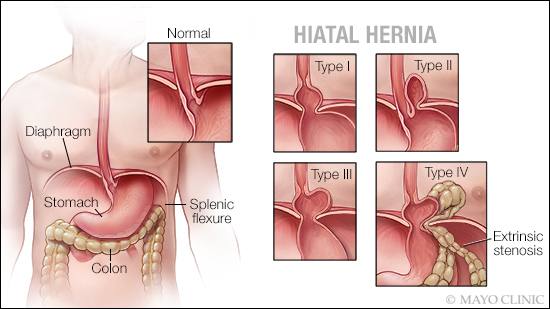Hiatal Hernia Surgery in Saudi Arabia
Search and Compare the Best Clinics and Doctors at the Lowest Prices for Hiatal Hernia Surgery in Saudi Arabia

Find the best clinics for Hiatal Hernia Surgery in Saudi Arabia
No clinics available
Morocco offers the best prices Worldwide
Price: $ 520

- Home
- Saudi Arabia
WHY US?
At Medijump, we're making medical easy. You can search, compare, discuss, and book your medical all in one place. We open the door to the best medical providers worldwide, saving you time and energy along the way, and it's all for FREE, no hidden fees, and no price markups guaranteed. So what are you waiting for?

Free

Best Price

Widest Selection

Risk-Free
What you need to know about Hiatal Hernia Surgery in Saudi Arabia

A Hiatal Hernia is when the stomach extends up into the chest through an opening in the diaphragm. Hiatal hernia surgery is a surgical procedure to repair and return the stomach to its normal location and is normally performed when the symptoms are severe or it did not respond well to other treatments.
What does a Hiatal Hernia Surgery Procedure Involve?
Hiatal hernia surgery can be performed as a laparoscopic or open surgery; both are done under general anesthetic. With open surgery, your surgeon makes a single large incision in your abdomen and returns your stomach to where it belongs and wraps it around the lower part of the esophagus to create a tighter sphincter. With laparoscopic surgery, your surgeon will make 3 to 5 small incisions to insert surgical instruments and the laparoscope. The laparoscope transmits images of the internal organ to a monitor, guiding your surgeon through the surgery.
How Long Should I Stay in Saudi Arabia for a Hiatal Hernia Surgery Procedure?
You may need to stay in the hospital for 1 to 3 days, but you should plan to stay in Saudi Arabia a lot longer. Plan to stay for at least 7 to 14 days or when you get sign-off from your surgeon. During your stay, you will need to attend scheduled follow up appointments and also removal of the stitches.
What's the Recovery Time for Hiatal Hernia Surgery Procedures in Saudi Arabia?
A full recovery may take about 10 to 12 weeks, but you can resume some of your daily routines and work within 6 to 8 weeks. If you have a physically demanding job, you probably need around 3 months before you can return. However, when the surgery is performed through a laparoscopic method, you may be able to recover in just a few weeks.
What sort of Aftercare is Required for Hiatal Hernia Surgery Procedures in Saudi Arabia?
After a hiatal hernia surgery, you need to avoid baths, hot tubs, or pools. Instead, you can wash your body by taking a shower. You will have a restricted diet to prevent your stomach from extending, this diet involves eating four to six meals per day rather than 3 large meals, as well as avoiding food that causes gas. Your doctor will also give you coughing and breathing exercises to help strengthen your diaphragm.
What's the Success Rate of Hiatal Hernia Surgery Procedures in Saudi Arabia?
A hiatal hernia surgery is effective and safe, with around 90% to 95% success rate. The mortality rate after the laparoscopic method is 0.57%, while the mortality rate after open surgery is about 1.0% - 2.7%. Just like any surgery, there are risks, complications, and that you need to be aware of, including bleeding, injury to internal organs, infection, diarrhea, abdominal bloating, and recurrence of the hernia.
Are there Alternatives to Hiatal Hernia Surgery Procedures in Saudi Arabia?
Hiatal hernia surgery is effective for those that experience severe symptoms. If your symptoms are mild, you can opt for medications or home treatment.
What Should You Expect Before and After the Procedure?
Once you have fully recovered, the symptoms that you experience before the surgery, such as nausea and heartburn, should subside.
Whilst the information presented here has been accurately sourced and verified by a medical professional for its accuracy, it is still advised to consult with your doctor before pursuing a medical treatment at one of the listed medical providers
No Time?
Tell us what you're looking for and we'll reachout to the top clinics all at once
Enquire Now

Popular Procedures in Saudi Arabia
Prices Start From $42

Prices Start From $4

Prices Start From $260

Prices Start From $520

Prices Start From $714

Recommended Medical Centers in Saudi Arabia for procedures similar to Hiatal Hernia Surgery

- Interpreter services
- Translation service
- Religious facilities
- Medical records transfer
- Medical travel insurance
- Health insurance coordination
- TV in the room
- Safe in the room
- Phone in the room
- Private rooms for patients available

- Interpreter services
- Translation service
- Religious facilities
- Medical records transfer
- Medical travel insurance
- Health insurance coordination
- TV in the room
- Safe in the room
- Phone in the room
- Private rooms for patients available

- Interpreter services
- Translation service
- Religious facilities
- Medical records transfer
- Medical travel insurance
- Health insurance coordination
- TV in the room
- Safe in the room
- Phone in the room
- Private rooms for patients available
Hiatal Hernia Surgery in and around Saudi Arabia
Introduction
The Kingdom of Saudi Arabia is the birthplace of Islam and is home to the holy Muslim city of Mecca, all Muslims are required to make a pilgrimage to this city at least once during their life and non-Muslims are forbidden from the city. There are other wonders to be found here, from the Red Sand Dunes in Riyadh, Jeddah’s coral architecture, to the azure waters of the Red Sea. In the last few years, the Kingdom has developed a plan to encourage international patients to seek treatment at its medical centers. The healthcare sector in the country has constantly improved and developed and the country has all the attributes to have a successful medical tourism industry, such as ultra-modern hospitals that are well-equipped with cutting-edge technology, foreign-trained doctors and specialists, and a well-established private healthcare sector.
Popular Cities and Regions in Saudi Arabia
The capital city is Riyadh, which is one of the wealthiest cities in the world. It offers amazing attractions for tourists, such as the Masmak Fortress, the National Museum, the Kingdom Center, the Sky Bridge, Riyadh Zoo, and the Antiquities Museum. Another popular city is Jeddah, which is called the Bride of the Red Sea. It’s a large metropolitan city with an incredible waterfront and beautiful old town. It’s the traditional gateway to Mecca, as well as the historic crossroads of traders and pilgrims. Most tourists visit this city to admire its World Heritage Red Sea architecture, explore its lively souq, relax in its laid-back coastline, and try its world-class cuisine.
Transport in Saudi Arabia
King Fahd International Airport is the largest airport in Saudi Arabia, located in the city of Dammam. It serves flights to and from numerous cities in Europe, Asia, and the Middle East. Domestic flights are the best way to travel around this country. Buses, taxis, and car rental are widely available for travel inside the cities.
Visas in Saudi Arabia
Almost all nationalities need to have a visa to visit Saudi Arabia, except for citizens of Bahrain, Kuwait, Oman, and the UAE. eVisa or visa on arrival is available for holders of passports of 51 countries, including all EU countries, the US, the UK, and Japan. Most other countries need to obtain a visa prior to arrival.
Weather in Saudi Arabia
Saudi Arabia has two seasons, summer and winter. Summer (April – October). The weather is extremely hot and humid. The average temperatures range between 40oC to 45oC, but it can soar to 49oC. Winter, from November to March, brings mild temperatures, with an average of 20oC during the day and 10oC during the night.
Additional Info
- Local Currency: Saudi riyal (SAR) is the currency. 1 USD is equivalent to 3.75 SAR.
- Money & Payments: ATMs are widespread and credit cards are widely accepted. There is no tipping culture.
- Local Language: Arabic is the official language, but English is widely spoken.
- Local Culture and Religion: Women do not need to wear abayas (a long black, robe-like dress) anymore, except at religious sites. However, both men and women have to wear modest clothing and refrain from showing too much skin. Islam is the state religion and the country’s law requires all citizens to be Muslim. Any non-Muslims who want to acquire Saudi Arabian nationality will have to convert to Islam. There are Hindus, Christians, and Buddhists in the country but all of them are foreign nationals.
- Public Holidays: The most celebrated public holidays in Saudi Arabia are Eid Al-Fitr, Eid Al-Adha, ad National Day.
Popular Searches
- Plastic Surgery in Thailand
- Dental Implants in Thailand
- Hair Transplant in Thailand
- Breast Augmentation Thailand
- Gastric Sleeve in Thailand
- Gender Reassignment Surgery in Thailand
- Laser Hair Removal in Bangkok
- Botox in Bangkok
- Dermatology in Bangkok
- Breast Augmentation in Bangkok
- Coolsculpting in Bangkok
- Veneers in Turkey
- Hair Transplant in Turkey
- Rhinoplasty in Turkey
- Stem Cell Therapy in Mexico
- Rhinoplasty in Mexico
- Liposuction in Mexico
- Coolsculpting in Tijuana
- Rhinoplasty in Korea
- Scar Removal in Korea
- Gastric Sleeve in Turkey
- Bone Marrow Transplant in India
- Invisalign in Malaysia
- Plastic Surgery in the Dominican Republic
- Tummy Tuck in the Dominican Republic
- Plastic and Cosmetic Surgery in Poland
- Rhinoplasty in Poland
- Hair Implant in Poland
- Dental Implants in Poland
- IVF in Turkey